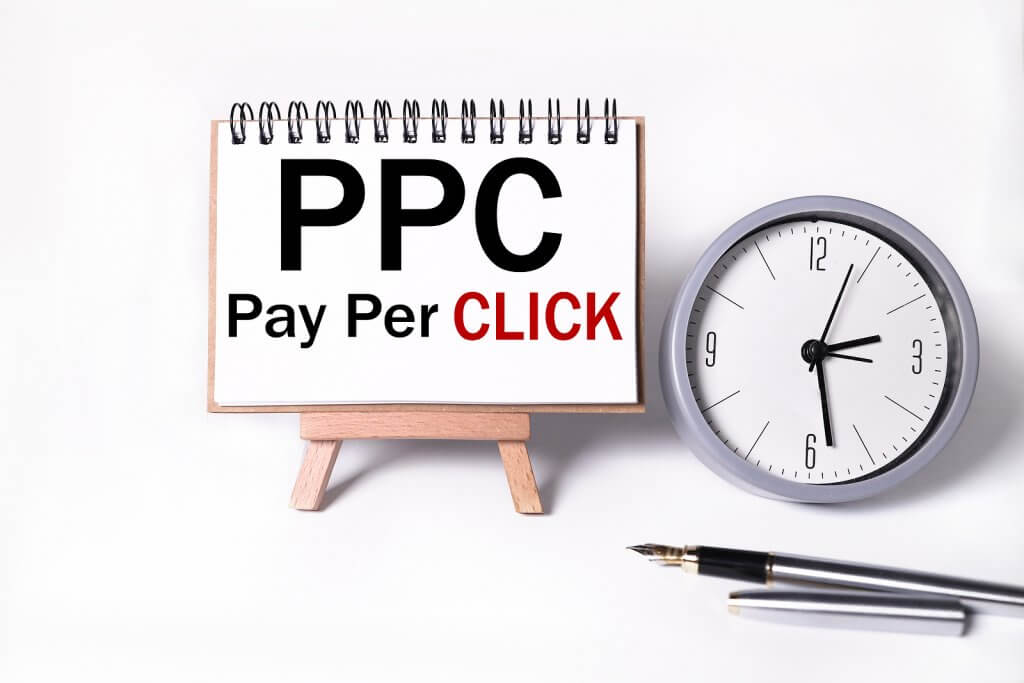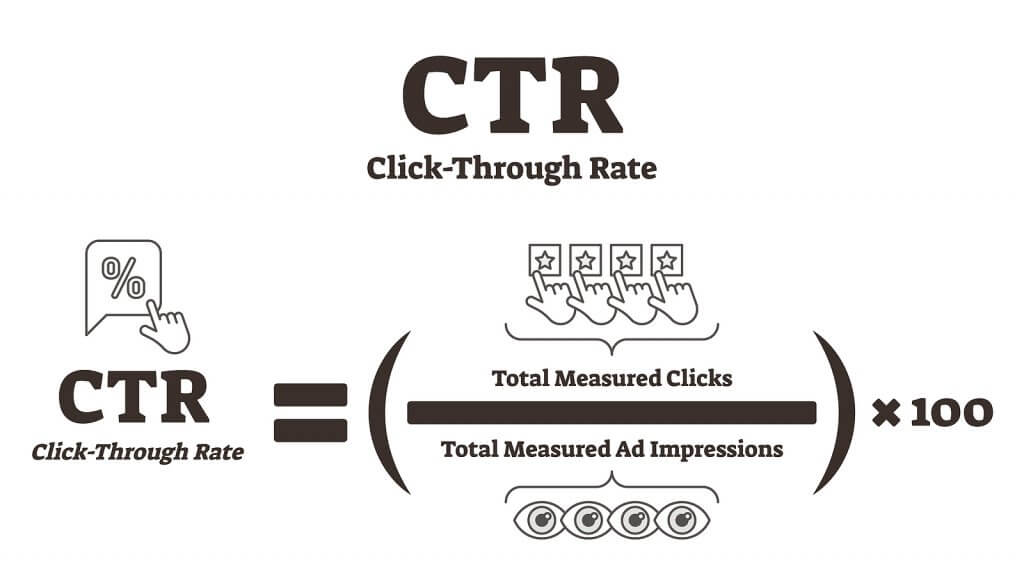7 Tips To Ace A PPC Marketing Interview
I have been working in digital marketing for nine years and have been doing PPC marketing for almost seven years. During this time, I’ve interviewed several people for junior and entry-level PPC marketing jobs. I’ve interviewed graduates who did not have what it takes to do PPC marketing, and I’ve interviewed people who would be ideal for the role. I’ve also interviewed people who I felt may have been good for the role but who just did not come across very well. I had to turn these people down even though I did think that these people would have gotten the job had they prepared a little more.

I’m going to talk about PPC marketing in UK. From what it is, and what it entails. However, more importantly, if you are interested in a career in PPC, then I am going to give some tips on making yourself irresistible to an employer. All the usual tips that you will read on general ‘interview tips’ blogs like dressing formally, researching the company and coming with some questions still apply. I want to focus on some more specific things that you can do to give you an advantage over other candidates if you’re going to move into a career in PPC marketing.
PPC is a type of digital marketing
Before we can jump into how you can secure a job in PPC, we first need to understand what it is.

PPC is one form of digital marketing; digital marketing uses various tactics to sell your products or services on the internet. There are several digital marketing disciplines out there. Some of the main ones are below.
- Pay Per Click (PPC)
- Search Engine Optimisation (SEO)
- Social media marketing
- Paid social
- Affiliate marketing
- Email marketing
- Conversion Rate Optimisation (CRO)
Each digital marketing discipline requires a slightly different skillset. If you start off doing one form of digital marketing and you feel that another digital marketing discipline would suit your skills better, then you can switch over. All digital marketing builds some skills that are transferable to other areas within digital marketing. In this blog, I’m going to be looking specifically at PPC marketing.
What is Pay Per Click (PPC)?
Pay Per Click, or PPC is an advertising method where the advertiser pays to have their ad appear on Google’s search results pages. PPC works on an auction system where the advertiser bids a certain amount to have their ad show for a specific set of keywords. The more an advertiser bids, the higher their chances of appearing on the top of the search engine result pages.
PPC ads get called paid listings. You can spot paid listings on Google because they start with an ‘Ad.’
Other search engines offer PPC advertising like Bing, but the leading PPC advertising platform is Google Ads. This is because Google’s search engine has the most volume of users.
What can I expect to be doing?
So, you have a basic understanding of what PPC is, but before you decide to focus on getting a career in it, you probably want to know what the day-to-day activities within PPC look like. While this is not the place for a comprehensive list of what a job in PPC entails, I’ve added a few things that a junior-level PPC expert would be doing. This should give you a feel of what you can expect if you were to focus on a career in PPC.
- Keyword research– Identifying what people interested in your client’s business would search for. You would use this information to create keywords to target.
- Ad copy creation– Using your creativity to make ad copy that resonates with your client’s target market.
- Creating PPC campaigns– Creating PPC campaigns that align with the client’s goals and strategy.
- Search Query mining– Looking through the list of searches that your ad appeared on and blocking out irrelevant searches. This helps to minimise the amount of your advertising budget that is wasted
- Ad copy testing– Creating and running multiple ad variations. Once they have built up enough data, you can decide on which one performs better and pause the poorer performing ad.
- Data analysis– One of the areas that I find the most interesting with PPC marketing is all the different targeting methods and data analysis that can be done to improve the performance of your PPC advertising. For example, you may find that females aged 65+ perform very poorly for a client and decide not to show them PPC ads. You may also find that users based in Leeds are a lot more profitable than users in other areas and choose to increase the spend in that area.
- Creating reports– To be able to do data analysis, reports need to be created. While this is something that is increasingly being automated, reporting is something that you will be looking into
- Diagnosing problems– Why have sales suddenly dropped? Is it because a competitor is running an aggressive sale or could be down to the business increasing their prices? Perhaps you have seen traffic shoot up, but sales have not. Why is that? A PPC expert needs to be aware of what is going on in their PPC account and why specific changes are taking place.
7 tips on securing a career in PPC marketing
1. Learn some of the basic terminologies
You do not need to know all the terminology, but it helps to be able to speak PPC when you go to an interview. Even though entry-level PPC jobs will provide all the basic training, as a recruiter, I would expect the candidate to have researched a little about PPC. Therefore, they should be aware of some of the terminology. As a bare minimum, I would recommend that you familiarise yourself with the below terminology
- Impressions– The number of times your ad was shown.
- Clicks– The number of times your ad was clicked.
- Cost– The total cost of advertising.
- Conversions– The number of conversions that were achieved. A conversion is a goal that you are trying to achieve. So, if you’re selling clothes, then a conversion could be a sale. If you are trying to obtain leads or a newsletter signup, then you can record these as conversions.
- Conversion value– The values of conversions. So, for example, if you get a sale worth £200, then that would be one conversion with a conversion value of £200.
- Cost per click (CPC)– The average cost of a click.
- Clickthrough rate (CTR)– The percentage of times that your ad received a click compared to the number of times it was shown.
- Conversion rate (CVR)– The percentage of times your PPC ad received a conversion compared to the number of times it was clicked.
- Return on ad spend (ROAS)– The amount of times greater your total conversion value is compared to your advertising cost.
2.Get certified
There are several PPC certifications that you can achieve for free. These certificates are recognised in the PPC job market and will impress an employer looking for an entry-level candidate.
The certificates mainly look at how to use the Google Ads system and understanding the metrics. What’s more,Google Skillshop also contains useful tutorials and videos that teach you everything you need to know about PPC marketing on Google Ads.
Below are some of the certifications that you can take on the Google Skillshop. You do not have to obtain all these certifications as they are probably too advanced for an entry-level candidate. However, if you can study the course material and pass Google Ad Search certification, this should give you a leg up in an interview. This is because this exam contains a lot of the things that an entry-level PPC executive would be working on.
- Google Ads Search
- Google Ads Display
- Google Ads Video
- Shopping Certification
- Google Ads Measurement
3. Learn to use Microsoft Excel
PPC experts spend a lot of time in spreadsheets slicing and dicing PPC performance data in various ways. You will, therefore, need to know some basic Excel formulas to be able to do this. Even though this can be taught, if you say you know how to do a VLOOKUP() and create a Pivot table in your interview, it will increase your chances of securing the job. This is because less time would be required to train you, and it also shows that you have researched PPC and have shown enthusiasm to learn as much of it as you can before applying for a job.

As a starting point, I would recommend getting comfortable with the below formulas and features in Microsoft Excel or another spreadsheet software. There are many more, but you do not need to be an expert before you even start doing PPC. If you want to take things a step further, then read my blog on the top Microsoft Excel formulas for PPC experts.
- SUM()
- LEN()
- VLOOKUP()
- SUMIF()
- SUMIFS()
- Pivot tablets
4. Learn how to calculate some basic PPC metrics
Once you start doing PPC marketing, you will quickly notice that some metrics come up a lot. If you know how to calculate these metrics, it makes it a lot easier to understand what they are doing. What’s more, it’ll impress the interviewer if you know how to calculate these metrics. There are many more metrics, but if you know the below formulas, that should be enough to impress an interviewer. If you want to take things a step further, then have a read of my blog on PPC formulas.

Cost per click (CPC) = Cost / Clicks
Clickthrough rate = Clicks / Impressions
Conversion rate (CVR) = Conversions / Clicks
Return on ad spend (ROAS) = Total conversion value / Cost
5. Read PPC blogs
You don’t have to read a lot of blogs and understand everything that is being said, but if you read a blog now and then, you will slowly start to pick up things. I would say as a starting point, read the Google Ads announcements blog. This is where Google announces new features and changes to their Google Ads advertising platform. If you’re able to mention one or two of the latest changes made to Google Ads, that would impress me when considering an entry-level candidate. At the very least, learn what is the difference between a Paid Search campaign, a Shopping campaign, Display campaigns and paid Facebook advertising. There are many blogs out there that you can read including my own personal PPC blog.

6. Create a PPC campaign
Reading about the theory of things can help to learn PPC marketing, but there is no replacement for creating a campaign yourself. This may not be something that everyone is comfortable doing. However, you could try signing up to Google Ads and creating a campaign for yourself. There are plenty of blogs and tutorials on YouTube that show you how to create a Google Ads account and start creating a campaign. At one point when creating a Google Ads account, you will be asked to put in payment details. This step is mandatory, so make sure that you pause any campaign that you create; otherwise, you could end up getting charged for clicks on an active PPC campaign.
7. Read up on Google Analytics
There are several tools out there that provide further insights on how users are interacting with your site. One of the most popular tools to do this is called Google Analytics. PPC experts use Google Analytics a lot so make sure you read up on Google Analytics. You don’t need to be an expert in using it, but it does help to have something intelligent to say about Google Analytics in an interview. There is also a free Google Analytics exam that you can take on the Google Skillshop along with some material to help you pass the exam.

Wrapping up
With more businesses getting a website and doing some form of marketing on the internet, digital marketing is an interesting field to get into. There is currently a shortage of PPC marketers, and PPC agencies are often recruiting for good PPC people.
If you’re interested in a career in PPC advertising, then you can use the above seven tactics to not only learn more about PPC marketing, but also impress an employer during the interview. You don’t have to cover all the seven points that I’ve mentioned as they’re just suggestions to give you a leg up. The key is to do take measures that will allow you to talk about PPC marketing in your interview. You need to show the employer that you are serious about a career in PPC marketing and have therefore actively researched PPC in your own time.